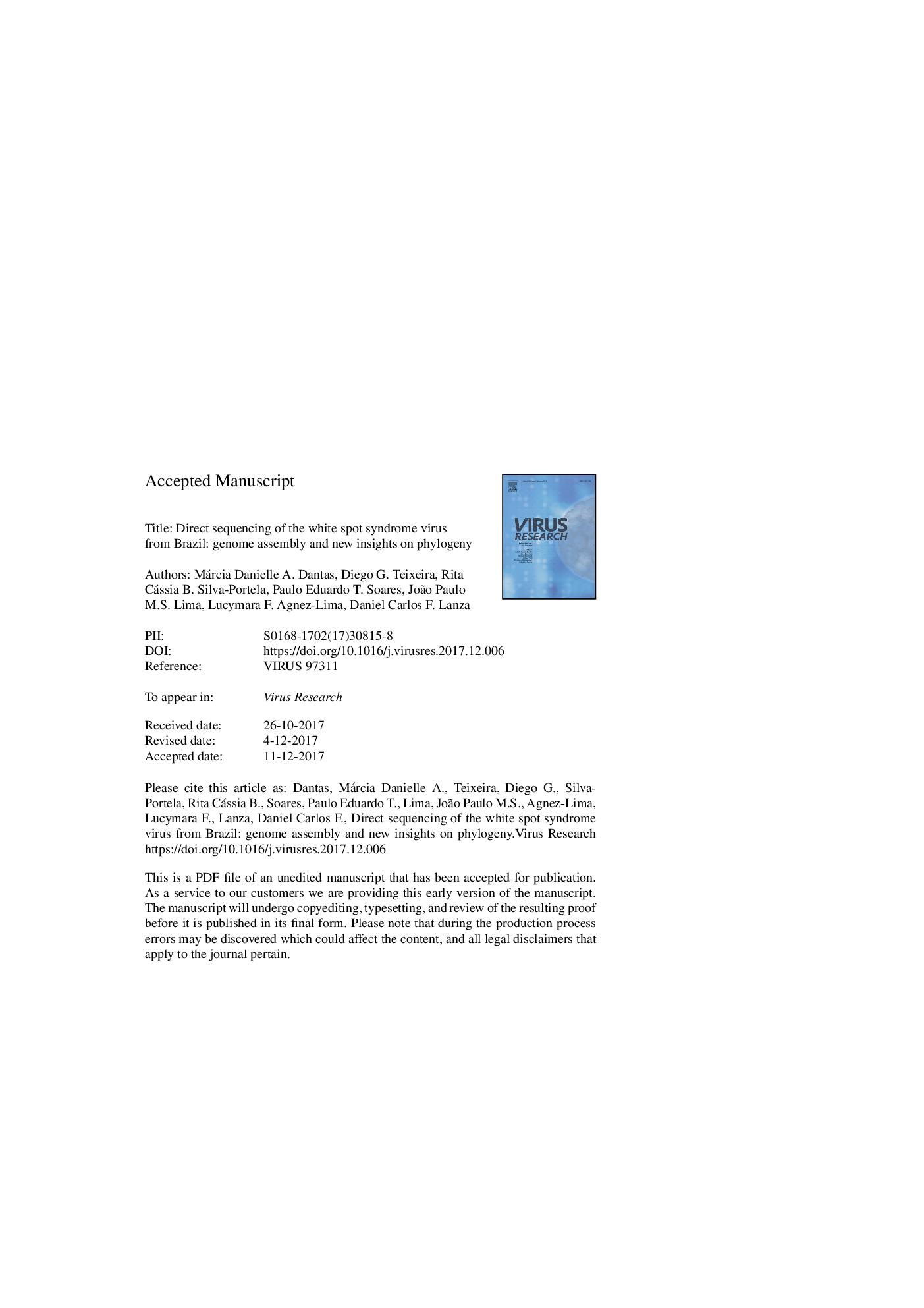| Article ID | Journal | Published Year | Pages | File Type |
|---|---|---|---|---|
| 8751939 | Virus Research | 2018 | 30 Pages |
Abstract
White spot syndrome virus (WSSV) has been the cause of great economic losses in world shrimp farming. In this work the genome of a Brazilian WSSV isolate was determined from direct sequencing of total DNA extracted from an infected whiteleg shrimp, and assembled based on a chimera template approach. Comparisons between WSSV-BR and other isolates revealed that the Brazilian virus has a relatively small genome, and is very similar to isolates from Thailand and Mexico. A phylogenetic relationship using different approaches has demonstrated that these isolates share a common evolutionary history. An analysis of conflicting phylogenetic signals also considering genomes of other isolates revealed that the evolutionary history of WSSV may be related to recombination events. We observed that these events can also be traced at some level by analyzing the homologous regions in the WSSV genome. The existence of recombination events introduces a new point of view that must be considered in the evolutionary history of WSSV.
Keywords
Related Topics
Life Sciences
Immunology and Microbiology
Virology
Authors
Márcia Danielle A. Dantas, Diego G. Teixeira, Rita Cássia B. Silva-Portela, Paulo Eduardo T. Soares, João Paulo M.S. Lima, Lucymara F. Agnez-Lima, Daniel Carlos F. Lanza,
